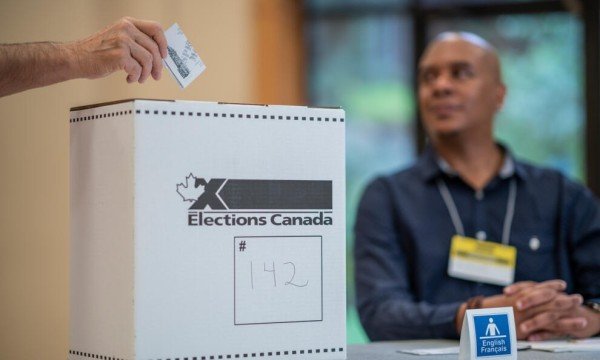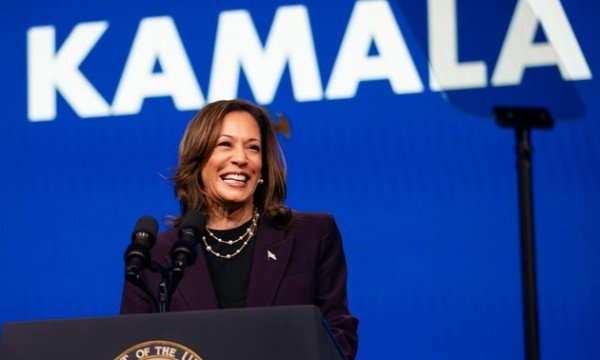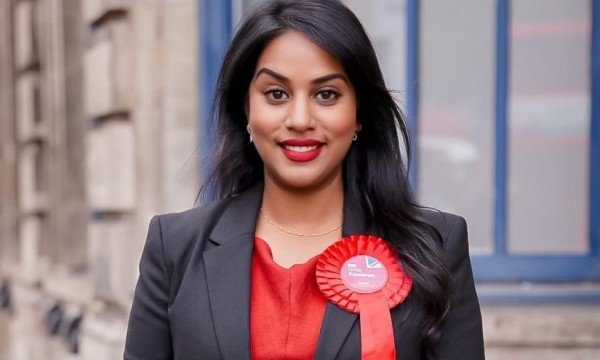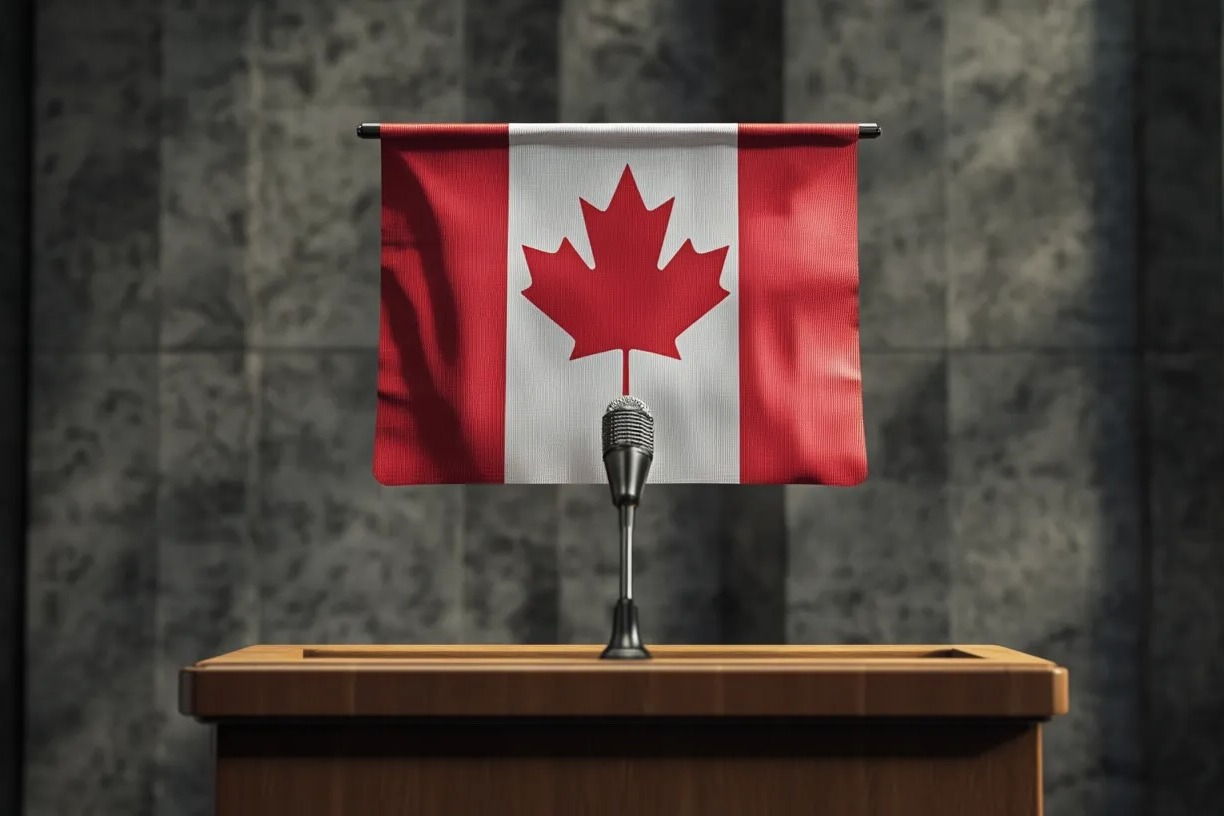
It became clearer than ever why I had to vote Conservative.
Watching Canada decline - watching us lose what it truly means to be Canadian - has been heartbreaking. I never imagined I would find myself writing this. But after years of broken promises, squandered potential and communities like ours being pushed to the margins, the need for change seemed obvious - not just for Tamil Canadians, but for every Canadian. Unfortunately, that clarity has been clouded by misinformation and political theatre.
My hope is that by sharing my perspective, I can encourage you to think seriously and strategically about who has truly earned your vote this election. Not because of party loyalty. Not because of tradition or ideology. But because we need change - real, executable, measurable change.
As a Tamil Canadian, I come from a people who know what injustice feels like. We’ve carried our trauma with grace, rebuilt our lives in a new country and contributed in every way we know how - as entrepreneurs, educators, engineers, artists and community builders. We’ve asked for very little. But we’ve given everything.
What we want now - what I want - is a government that doesn’t just talk, but acts. One that respects the value of hard work. One that understands what it means to build something from nothing. One that puts Canadians first and politics second.
Enough Talk. Time for Execution.
Canada is slipping. That’s hard to admit. But let’s be honest - productivity is down, the cost of living is up and faith in our institutions is cracking. We are one of the wealthiest nations on earth, yet we are running deficits, failing to meet our healthcare commitments and watching young Canadians lose hope in ever owning a home.
The same voices keep telling us they have a plan. But if they had the answers, we wouldn’t be in this mess.
I don’t want another leader who can speak well. I want someone who can do well. I want a platform that is executable, not theatrical. We don’t need more performance politics. We need performance.
Pierre Poilievre is offering something the others haven’t: a disciplined focus on economic recovery, productivity and small business. And he’s not afraid to speak the truth, even when it’s politically inconvenient.
Entrepreneurship Is the Engine of Hope
Like many Tamil Canadians, I believe in the power of entrepreneurship. I’ve seen how a small business can give a family freedom, employ others, contribute to the local economy and lift an entire community.
In Canada, small businesses represent over 98% of all businesses and contribute nearly 30% of GDP, employing more than two-thirds of the private sector workforce. That’s not a stat. That’s our people. That’s our future.
When we empower entrepreneurs, we create jobs. When we create jobs, we increase productivity. When productivity rises, so does GDP. And that’s how we fund healthcare, education, housing and infrastructure - not with empty promises, but with output.
I want to see a government that doesn’t just see small business owners as tax targets, but as nation builders.
Regaining Canada’s Voice on the Global Stage
Canada was once a voice of moral clarity, of strength rooted in democratic values, human rights and bold vision. We led peacekeeping missions, championed global development and were viewed as a credible middle power with an outsized influence. But today, we’re not leading - we’re lagging. We’re not setting standards - we’re making excuses.
Across the board - foreign policy, innovation, energy, trade - we have fallen off the map.
While nations like the U.S., India, Israel and even smaller economies like Estonia or the UAE are aggressively investing in artificial intelligence, biotech and clean tech, Canada has been slow to scale its capabilities. Despite producing some of the world’s leading AI researchers (Geoffrey Hinton, Yoshua Bengio), we’ve failed to capitalize on that talent at home. Our AI ecosystem ranks 4th globally, but we don’t crack the top 10 when it comes to AI adoption in industry. What’s the point of having world-class thinkers if we don't turn that into economic output?
At a time when natural resources are once again becoming a critical geopolitical asset - especially critical minerals for EVs and green technologies - we are under leveraging our immense advantage. Instead of responsibly exporting energy and mining the raw materials the world needs, we’ve burdened these sectors with red tape, uncertainty and policy schizophrenia. The result? Billions in lost investments and a reputation for unreliability.
When it comes to trade, our once-ambitious global strategy has been reduced to photo ops. Exports as a share of GDP have declined over the past decade. Our productivity growth is now among the worst in the G7. We're not growing our pie - we're slicing thinner pieces and calling it progress.
This isn’t a failure of resources. We are one of the most blessed nations on Earth - with land, water, energy, education, diversity and technology. This is a failure of leadership. A failure of courage. A failure to act.
If we were truly maximizing our potential, we would be leading on multiple fronts - exporting AI solutions to solve healthcare shortages, leveraging our immigrant talent pool to power startups, or using our natural resources not just for extraction but for manufacturing and value creation right here at home. That’s what it means to lead in the 21st century.
But instead, we’ve become comfortable with mediocrity. And mediocrity, in a world that’s moving this fast, is not neutral - it’s regression.
I want us to reclaim that leadership role. To be a country that isn’t just comfortable, but courageous. A country that defends the oppressed, that values freedom that builds things again and that stands tall on the global stage - not because of our words, but because of our results.
Tamil History, Geopolitics and the LTTE Ban
One of the most frequent objections I hear from fellow Tamil Canadians about supporting the Conservatives stems from the 2006 ban on the Liberation Tigers of Tamil Eelam (LTTE), imposed under the Harper government. But this critique, while emotionally understandable, misses a deeper geopolitical reality - and misattributes blame in a way that undermines our strategic understanding of how the world works.
The post-9/11 world order ushered in a zero-tolerance era for any perceived terrorist activity. The international community - NATO allies, the United Nations and virtually every major Western democracy - began drawing hard lines. Acts of violence, regardless of motivation or historical context, were broadly condemned as terrorism. In this climate, Canada had little choice but to fall in line with its allies and global norms. Any government in power - Conservative, Liberal, or otherwise - would have enacted the same ban. It wasn’t about targeting Tamil aspirations. It was about aligning with the broader international security consensus.
Were many of us devastated by that ban? Absolutely. The LTTE, for many Tamils, represented not just a militant group, but the only organized resistance to state-led violence in Sri Lanka. But here's the truth we must face: we failed to evolve our struggle in ways that reflected the new world order. We clung to outdated methods, when what we needed was a recalibration of message and medium. Our cause was never unjust - but we haven’t achieved what we aspired to, in part because we didn’t adapt to the evolving geopolitical landscape.
What’s more concerning, though, is the hypocrisy of those voicing against the Conservatives. The LTTE as an organization no longer exists. Its operational structure is defunct, its leadership decimated. And yet, when the ban lapsed, it was this Liberal government - not Harper’s - that quietly moved to extend the ban, even in the absence of any credible threat. If we're going to talk about injustice, this is where the scrutiny belongs.
So let’s stop pretending this was a uniquely Conservative move. Let’s stop treating emotion as fact.
In contrast, when it actually mattered, it was Stephen Harper - yes, a Conservative - who took a principled stand and boycotted the 2013 Commonwealth Heads of Government Meeting (CHOGM) in Colombo. He was the only leader of any Commonwealth country to do so. Not one other Western leader had the courage. In the face of international pressure and economic interests, Harper chose human rights over diplomacy. That was not performative - it was unprecedented. That choice cost Canada influence in Colombo. But it earned the respect of a community that had been silenced for too long.
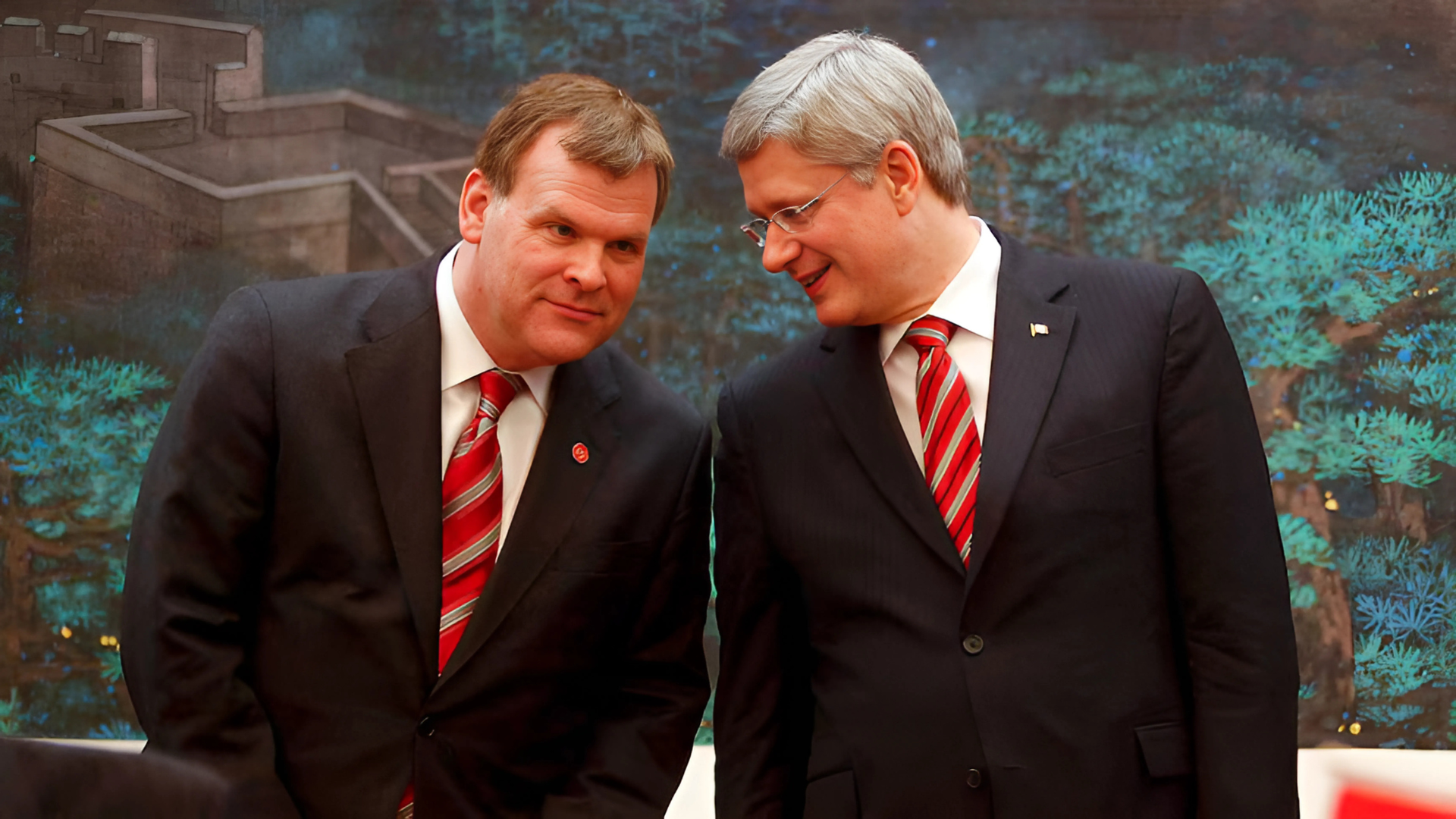
Since then, it’s been Conservative politicians and leaders who’ve shown up - not just with statements, but with action. Tamil Genocide Remembrance Week, passed into law in Ontario, was championed by Vijay Thanigasalam, a Conservative MPP. The powerful Tamil Genocide memorial in Brampton - the only one of its kind outside Sri Lanka - was backed by Patrick Brown, also a Conservative. These weren’t easy decisions. These were moves that faced backlash, but they happened anyway. Because some leaders chose principle over popularity.
And today, in this election, the pattern continues.
Pierre Poilievre is the only federal party leader - anywhere in the world - who has publicly committed to seeking the prosecution of the genocidal regime in Sri Lanka, including the Rajapaksa family, architects of mass atrocities. No one else has said it. Not Justin Trudeau. Not Mark Carney. Not any of the global leaders we are often told to admire. Just Pierre.
This isn’t a token gesture. It is a seismic shift in recognition. It may not dominate headlines in the mainstream, but it echoes deeply in our homes, in our elders, in our stories. It means someone heard us.
So if we’re going to critique history, let’s do it holistically. Let’s look at the facts - not just the feelings.
No party has been perfect. But if we are to judge them by actions - not words, not optics - the record is clear: more meaningful support for Tamil Canadians and for Tamil justice, has come through the Conservative movement than from any other source.
Think Strategically. Vote with Purpose.

We live in a parliamentary democracy. We vote for a party - not a president. If we want change, we need new leadership, not the same ideas in a new wrapper.
This is not about abandoning our values. It’s about ensuring those values are backed by vision and execution.
I am a Tamil. I am Canadian. And I believe it is time for change.
This is why I voted Conservative. And why I hope you’ll give that choice a serious, strategic look on election day.
It’s time.




